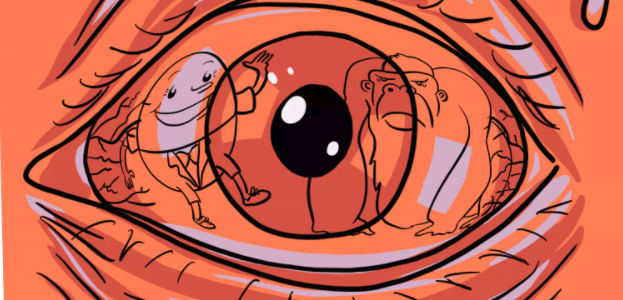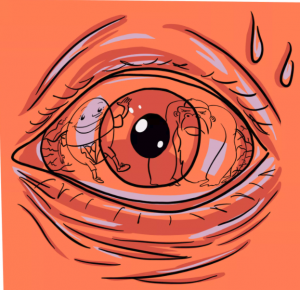
Lack of sleep contributes to obesity

Chronic stress disrupts our sleep and our blood sugar levels, which in turn leads to increased hunger and comfort eating, and can lead not only to unhealthy levels of body fat but also to type-2 diabetes. Why do we get fat, as we know it when we eat more calories than we burn off. Although calorie counting is important, there is undisputed evidence that stress plays a major part in our weight gain.
A study led by Dr. Laura Hardie, Reader in Molecular Epidemiology, at the University of Leeds- looked at the links between sleep duration diet, weight and other indicators of overall metabolic health such as blood pressure, blood cholesterol, blood sugar and thyroid function, found that people who were sleeping on average around six hours a night had a waist measurement that was 3cm greater than individuals who were getting nine hours of sleep at night. They also found shorter sleepers were heavier sleepers. The study involved 1615 adults who reported how long they slept and kept their sleep diary and food intake and also participated in giving blood samples and their weight waist circumference and blood pressure recorded. “Obesity contributes to the development of many diseases, most notably type 2 diabetes”. Shorter sleep was also linked to reduced levels of HDL cholesterol, the good cholesterol that helps remove bad fat from the circulation and protect us against conditions such as heart diseases.
The research team, from the Leeds Institute of Cardiovascular and Metabolic Medicine and the School of Food Sciences and Nutrition, reported their findings in the journal PLOS One.
Dr. Giles Yeo, a member of the Trust Me, I am a Doctor team, decided with the help of scientists from Leeds University to put himself through a stressful day. The Leeds scientists started asking Giles to do the Maastricht Stress Test, by putting him in front of a computer and made him rapidly subtract a number 17, from another number 2, 043, when he kept on making mistakes which for someone like Giles is particularly stressful. They also got him to put his hand in a bath of ice-cold water and hold it there. The Leeds team measures Giles’s blood sugar levels both before and after these tests.
Our blood sugar levels rise when we eat, and in a healthy person like Giles, they quickly return to normal. But Leeds team found that on the day when Giles was deliberately put through the stress, his blood sugar levels took three hours to return to normal. Some six times longer than a previous stress-free day. When you are stressed, your body goes into “fight or flight” mode, and think your body is under attack and releases glucose into your blood to provide energy for your muscles , and if you don’t need that energy to run away from danger then your pancreas will pump out insulin to bring those blood sugar levels back down again. These rising levels of insulin and falling blood sugar levels will definitely make you hungry when you will be forced crave for sugary carbs.
The same is true when you have a bad night’s sleep. A team of researchers at King’s College London found that if you are sleep-deprived you would consume, on an average an extra 385k cal per day which is equivalent to the calories in a large muffin.
In another study not only a group of three and four-year-olds were deprived of their afternoon nap, but also kept them up for about two hours past their normal bedtime, resulting in children eating 20&% more calories than usual with more sugar and carbohydrates.
